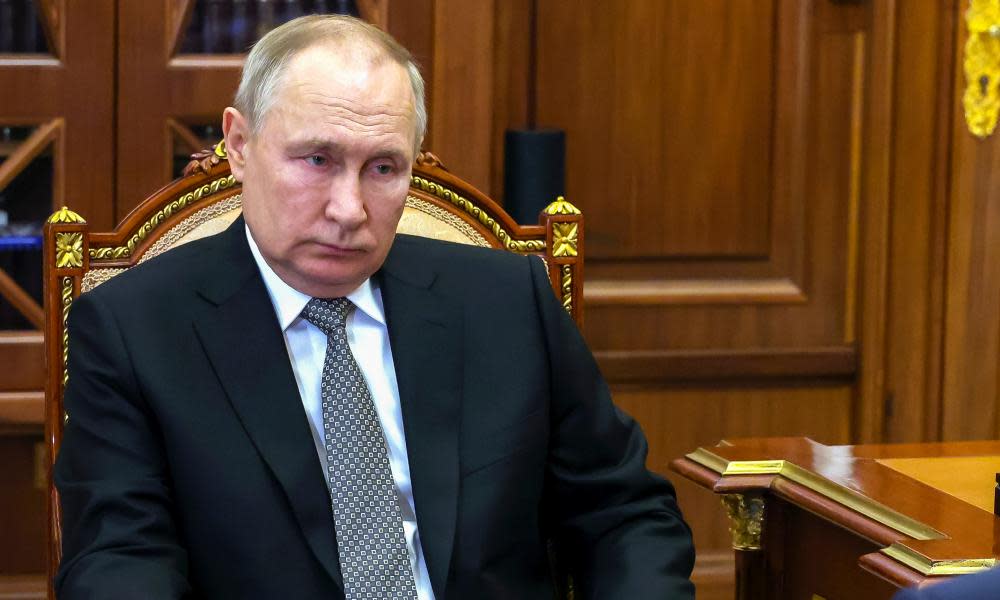The Guardian view on Ukraine and war crimes: the start of a case against Putin

It is entirely likely that Vladimir Putin may never be held fully accountable for his crimes. But the possibility of eventual justice grew somewhat brighter with the international criminal court’s decision last week to issue an arrest warrant for overseeing the abduction of Ukrainian children.
The compelling evidence of the forced transfer of thousands of children for adoption or to “re-education camps” is appalling. But this is only one of many horrors that Mr Putin has unleashed on Ukraine. There is growing support for prosecuting him for the invasion itself, which would require the creation of a special tribunal as the crime of aggression is not within the ICC’s scope. These calls are made in part because it is usually hard, if not impossible, for war crimes investigators to prove that those at the top sanctioned atrocities on the ground. Mr Putin can, however, be clearly linked to the abductions. Last month, the children’s rights commissioner, Maria Alekseyevna Lvova-Belova, indicted alongside the president, appeared on television thanking him for her “adoption” of a 15-year-old boy from Mariupol. This is the beginning of the case against Mr Putin, not necessarily the end.
For now, it is more of an annoyance than a threat or even a serious obstacle to him. Russia is not a signatory to the Rome statute, the court’s founding document, and does not recognise its jurisdiction. The warrant may hinder his travels – member countries are supposed to arrest Mr Putin if he visits – but governments have sidestepped such requirements in the past. As the ICC’s chief prosecutor, Karim Khan, observed, justice will be a matter of “stamina”. It may eventually catch up with the Russian president, as it did for Slobodan Milošević, if he falls from power. Most importantly, it may weigh in the minds of his officials and military leaders in the coming months. Any deterrent effect, however limited, can only be welcomed.
The ICC cannot succeed alone, however. It needs more support, including but not limited to greater financial backing. It has 40 investigators on the ground in Ukraine, yet funding has not increased accordingly. And though the Biden administration rescinded sanctions imposed on it by Donald Trump over the investigation of war crimes in Afghanistan by the US and others, the Pentagon is reportedly blocking cooperation on Russia because it fears a precedent which could lead to the prosecution of Americans in future.
The US has long maintained that the court does not have jurisdiction over non-signatories, even if the alleged crimes occurred in a country that is party to the treaty, such as Afghanistan. While 123 countries are party to the Rome statute, the US, like Russia and China, refused to join, undercutting the court’s credibility. Signing up would be the moral course, but is politically unfeasible. However, legal experts and some US officials argue that the administration could and should still cooperate. Even if its citizens were indicted by the ICC, the US could argue that the court should only prosecute when countries are incapable of bringing cases satisfactorily in domestic courts. American military and civilian courts have prosecuted soldiers for atrocities in Iraq, for example, though far from as frequently or effectively as needed.
Adopting this pragmatic course of cooperation with the ICC without full support would be an imperfect solution. But every support possible must be enlisted for an institution that, as Mr Putin’s case shows, is doing essential work.

 Yahoo News
Yahoo News 
